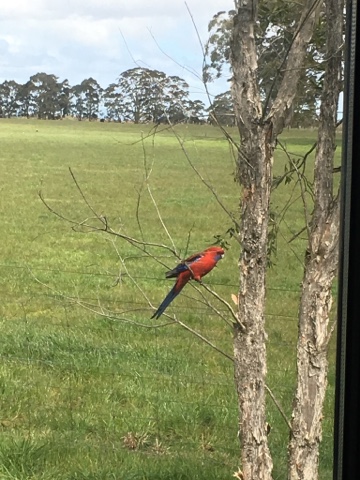Friday 30 September 2016
All systems go for our review
Grammar (selective) schools in the UK.
Thursday 29 September 2016
Independent national school funding body?
Marzano's 9 Effective Instructional Strategies Infographic
Wednesday 28 September 2016
Birmingham's secret hit list
Tuesday 27 September 2016
Hooray....holidays!
Monday 26 September 2016
Tanya Plibersek responds to Birmingham in the Guardian
Some private schools get too much state funding.....said Birmingham....I must have heard wrong!
Some wealthy schools are getting more than their fair share of funding and could lose money under a reimagined Gonski funding model, the education minister, Simon Birmingham, has said.
On the ABC’s Q&A program on Monday night, Birmingham said the promise that no school would be worse off did not apply under the Turnbull government because some schools were significantly overfunded.
He told host Tony Jones it was “possible” those schools, which he declined to list, could lose money under the new arrangements, which are due to be finalised by March.
He said some overfunded schools would take “more than 100 years to come into alignment with the current funding model” and that some of those were “wealthier private schools”.
Spreading the chips....
Saturday 24 September 2016
Parents wasting their money....
Insiders fails again
Shifting sand
LNP Use Nelson Mandela to sell their homophobia
Friday 23 September 2016
Birmingham has $600000 to waste!
Plibersek responds to Birmingham
Thursday 22 September 2016
Holiday reading
More drivel from Birmingham and 'brown nosing' from WA.
NSW education minister Adrian Piccoli has warned he will publish full results of commonwealth funding cuts in new school agreements which he says would increase funding to some of the most expensive private schools while cutting funds to public schools.
“We will be making it very clear which schools will win out of any new funding model and which schools are going to lose,” Piccoli told the ABC.
“And what they are proposing is public schools are going to lose money in NSW but continuing to index some of the most expensive private schools in Sydney and across Australia by 3%. That means expensive private schools go up a minimum of 3%.”
Any commonwealth funding cuts could be published in NSW as every parent can already see what funding is given to their school. The NSW education department publishes the full list of funding increases every year, describing the list as “made possible through the Gonski agreement”.
Ministers met to begin discussions in Adelaide on Friday after the Coalition refused to honour Gonski-style school funding agreements signed under the Gillard government. Western Australia is the only state to support the change so far.
The new agreements will be for 2018-19, or years five and six of the Gonski agreements, which are are contained in the Australian Education Act, legislated by Labor. That act says funding to non-government schools must increase under indexation by 3% annually.
Piccoli also warned the Turnbull government that it might not get school funding changes – which would break his state’s Gonski-style agreement – through the Senate.
Labor, the Greens and the Nick Xenophon Team do not support cuts to the school funding agreements, already enough to block any changes to the Education Act.
The federal education minister, Simon Birmingham, has yet to fully release his proposal as states were not given formal briefings ahead of the meeting. But Birmingham, who told states he would give a verbal briefing, has said he supports needs-based funding but with conditions attached.( A verbal briefing!!! how immature and unprofessional!!!)
Birmingham has argued that the current school funding agreements are a corruption of the Gonski recommendations because different states get different amounts for equivalent schools.
Gonski recommended delivering individual students across the country the same base level of funding with loadings for disadvantage such as location, socioeconomic factors and disability.
On his way into the meeting on Friday, Birmingham said he was looking for the states to show how they could improve the funding model.
“I’m looking for informed feedback and information from states and territories about how we can improve the funding model that is not what David Gonski envisaged,” he said.
But Labor has argued that each state’s school system began with a different funding level, so the first Gonski-style agreements had to bring all resource levels to similar standards.
Piccoli rejected the argument that NSW had a “sweetheart” deal from Julia Gillard for signing up to the Gonski deal first in the rush to the 2013 federal election.
He said NSW made tough decisions which cut costs from the education bureaucracy so he could put money directly into schools. NSW agreed to index state funding so that more money went into schools, and as a result the commonwealth agreed to more funding.
“You can’t punish NSW because we made tough fiscal decisions and then we invested that money into frontline education,” Piccoli said.
“You can’t punish NSW because we have done the right thing by schools.”
Piccoli said NSW had implemented Gonski “more purely” than any other state and as a result there was absolute agreement between the public schools, the Catholic system and the independent sector.





















































